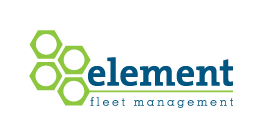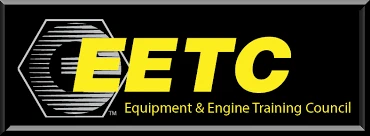
Archive for October 2022The Engine Gets a Boost (Turbocharged Engine Maintenance)Posted October 30, 2022 7:56 AMIf someone told you that your vehicle could have the same power but with a smaller engine, wouldn't that sound like great idea? Just think, a smaller engine would save you money at the gas station and you'd still get the same horsepower. The technology to do just that has been around for a long time. It's called a turbocharger. Race cars and other performance vehicles have been using turbochargers for years. It gives them a power boost without the need of a bigger engine, saving them fuel and pit stops. Automakers have offered turbo gasoline and diesel engines for years, but there were problems with durability. Plus drivers had to make some driving adjustments with the way turbos delivered power. Newer turbos, though, have been vastly improved, and manufacturers are including them in more models. For example, Jeep offers its 2019 Cherokee with a choice of two engines that each make about 270 horsepower. One is a 4-cylinder turbocharged engine and the other is a 6-cylinder conventional gasoline engine. The general rule of thumb is: the fewer the cylinders, the better the fuel economy. A turbocharged vehicle uses a turbine that is turned by exhaust gas. That compresses air that goes into the engine, which then allows it to use more fuel per second, increasing power. One advantage of a turbo is that it is only engaged when the driver demands more power from the engine by stepping on the throttle harder. One thing to remember, though, is that turbocharged engines have additional parts and are more complex. That means they can be more expensive to maintain. The upside? You'll likely save fuel. Like any complex machine, it's important that you maintain your turbo vehicle so it will give you more years of service. Steve & Stacy's Servicenter technicians are trained to inspect and service the systems associated with a turbo engine. If you already drive a turbocharged vehicle, keep up your regular maintenance schedule to get the longest life and performance out of it. Because of the advantages these powertrains offer, turbo engines are definitely here to stay. Steve & Stacy's Servicenter Beginning to See the Light (Check Engine Light Diagnostics)Posted October 16, 2022 8:48 AMIt's a light many drivers fear they'll see turn on at the most inopportune time. It's the one on the dash that says "Check Engine," "Service Engine Soon," or it may be simply an engine-shaped light. Your first instinct may be to pull off to the side of the road and turn off the engine. The truth is that Check Engine light can be pointing to problems as simple as a loose gas cap. But it could be as serious as a severely misfiring engine. Don't ignore it because it's there to help you avoid an expensive repair it is designed to alert you to, to tell you something's not quite right. Your vehicle has a connected system of computers and sensors constantly checking to see that all systems are working the way they should. If something isn't, the system will turn on the Check Engine light. If it's flashing, that could be serious. Look at some of the other warning lights or gauges such as heat or oil pressure. They could be telling you your vehicle's problem should be checked right away. In that case, if you can, safely pull off the road and shut the vehicle down. If your vehicle loses power and the Check Engine light is on, try not to push the demands you are making on the engine, such as towing or accelerating hard. Simply put, a flashing Check Engine light should be checked out by a professional as soon as possible. If the Check Engine light is on steadily, manufacturers say it means there's a problem, but it probably doesn't require immediate service. The system is designed to remember the problem it found and store it (as a code) so it can be retrieved later. When you do bring your vehicle in to have us see what's behind the Check Engine light coming on, we’ll hook your vehicle up to a diagnostics tool that can reveal the clues the engine's computers have stored. It takes a trained technician to understand those clues, like a doctor who can interpret a patient's symptoms and come up with the correct diagnosis. Some newer vehicles can even be checked remotely. Once we figure out the problem and repair it, you'll be back on the road again. It's nice to know the Check Engine light is your sentry, standing by to alert you the next time you begin to "see the light." Steve & Stacy's Servicenter How Tired Are Your Tires? (Tire replacement)Posted October 9, 2022 12:01 PMOf the things you think about most, your tires are probably pretty far down the list. That’s understandable because today’s tires are engineered to do their job without needing you to pay too much attention to them. But they DO wear out, and worn tires can contribute to skidding in bad weather, not being able to stop, a ride full of uncomfortable vibrations and, even a sudden blowout. Yikes. Let’s figure out right now how to know if your tires need replacing! Let’s face it. Most of us don’t know the first thing about tires. So, the best way to make sure what shape yours are in is to take your vehicle to a qualified service facility to have the tires checked out by a trained technician. Here are things they’ll check:
If it’s time to replace your tires, you’ll find you have many choices for new ones: different brands, models, designs, etc. Your service adviser can help you figure out which ones are right for you. It’s much better—and safer—to do it before one of them fails at the least opportune time. Steve & Stacy's Servicenter What's in a Number? (What Tire Numbers Mean)Posted October 2, 2022 10:06 AMYou've probably never paid much attention to the writing on the sides of your tires, but they contain a wealth of information. There's a long combination of letters and numbers that can tell you a whole lot about what tires your vehicle was designed to be riding on. Let's check out this example found on an SUV: P245/70R17 108T. The first letter, P, means it's intended for passenger vehicles. If there's no letter, it means it's a metric tire. If there's an LT at the beginning or end that means a tire designed for light trucks. Moving on to our example, the 245 shows how wide the tire is in millimeters from sidewall to sidewall. The number that follows in our example, 70, means the height of the tire is 70% of its width. The letter after that in our example, R, describes the type of tire (on this vehicle, radial). Following that is the diameter in inches, in our SUV example, 17 inches. How much load the tires' sidewalls are designed to take is what that next number is all about (108 in our example). The higher the load index, the more weight the sidewalls can take. And the last letter is the speed rating of the tire, in our example, T. The further along in the alphabet that letter is, the higher its speed rating. So now you know what those letters and numbers mean. But why are they important? When you are getting ready to replace those tires, those numbers are telling you what the original equipment was when your vehicle was new. Sticking with the same rated tires is always a good idea. If you don't know what you're doing, trying different sized tires and wheels can cause real issues when it comes to performance and safety, considering all the computerized systems now found on vehicles. When in doubt, consult your service advisor when it comes to buying new tires. He or she knows what those tire numbers and letters mean… and a whole lot more. Steve & Stacy's Servicenter | ||
SearchArchiveApril 2016 (16)May 2016 (5) June 2016 (4) July 2016 (5) August 2016 (4) September 2016 (4) October 2016 (5) November 2016 (4) December 2016 (4) January 2017 (5) February 2017 (4) March 2017 (4) April 2017 (3) May 2017 (4) June 2017 (5) July 2017 (5) August 2017 (3) September 2017 (3) October 2017 (5) November 2017 (4) December 2017 (3) January 2018 (5) February 2018 (4) March 2018 (4) April 2018 (5) May 2018 (4) June 2018 (4) July 2018 (5) August 2018 (4) September 2018 (5) October 2018 (4) November 2018 (4) December 2018 (5) January 2019 (5) February 2019 (4) March 2019 (4) April 2019 (4) May 2019 (4) June 2019 (5) July 2019 (4) August 2019 (4) September 2019 (5) October 2019 (4) November 2019 (4) December 2019 (5) January 2020 (5) February 2020 (4) March 2020 (5) April 2020 (4) May 2020 (5) June 2020 (4) July 2020 (4) August 2020 (5) September 2020 (3) October 2020 (4) November 2020 (5) December 2020 (4) January 2021 (6) February 2021 (4) March 2021 (4) April 2021 (4) May 2021 (5) June 2021 (4) July 2021 (4) August 2021 (5) September 2021 (4) October 2021 (5) November 2021 (3) December 2021 (4) January 2022 (6) February 2022 (4) March 2022 (4) April 2022 (4) May 2022 (5) June 2022 (4) July 2022 (5) August 2022 (4) September 2022 (4) October 2022 (5) November 2022 (4) December 2022 (4) January 2023 (5) February 2023 (4) March 2023 (4) April 2023 (5) May 2023 (4) June 2023 (4) July 2023 (5) August 2023 (4) September 2023 (4) October 2023 (5) November 2023 (4) December 2023 (5) January 2024 (5) February 2024 (4) March 2024 (5) April 2024 (4) May 2024 (4) June 2024 (5) July 2024 (4) August 2024 (4) September 2024 (5) October 2024 (4) November 2024 (4) December 2024 (5) January 2025 (4) February 2025 (4) March 2025 (5) April 2025 (4) May 2025 (4) June 2025 (5) | CategoriesMaintenance (8)Service Intervals (2)Service Standards (2)Steering (5)Keys to a long lasting vehicle (2)Air Conditioning (7)Fuel Economy (4)Fuel System (5)Battery (9)Alignment (7)What Customers Should Know (67)Transmission (3)Brakes (14)Dashboard (1)Headlamps (4)Auto Safety (4)Safety (2)Fluids (6)Alternator (5)Oil Change (8)Fuel Saving Tip: Slow Down (2)Tires and Wheels (4)Cooling System (7)Drive Train (4)Winter Prep (2)Inspection (2)Windshield Wipers (2)Check Engine Light (3)Tires (10)Timing Belt (2)Automotive News (1)Exhaust (9)Winter Tires (1)Older Vehicles (1)Water Pump (2)Wheel Bearings (1)Suspension (2)Transfer Case Service (1)Spark Plugs (2)TPMS (3)Shocks & Struts (1)Brake Service (4)Tire Rotation and Balancing (2)Differential Service (1)Serpentine Belt (1)Shocks and Struts (2)Fuel Filter (1)Engine Air Filter (1)Trip Inspection (1) | |
What our clients are saying about us
We have established longterm and stable partnerships with various clients thanks to our excellence in solving their automotive needs!
Awesome staff! They are so kind and helpful and went out of their way to help me out when I was in a pinch nearby.

I am a repeat customer - went to get my oil changed and they reminded me that I was not yet time! I very much appreciate the honesty and looking out for me!





















